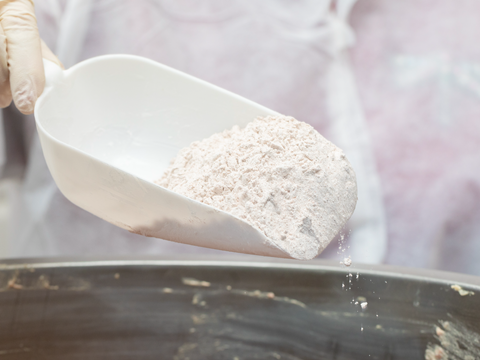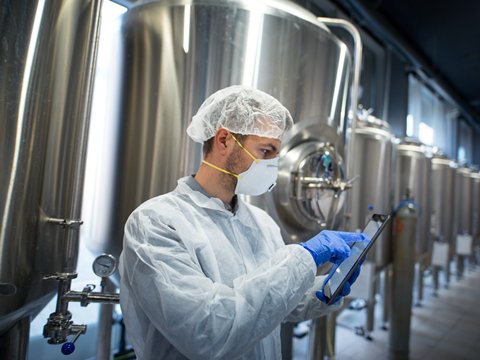
In a new whitepaper published by checkweighing system manufacturer Fortress Technology, the company reviews the environmental benefits of sharing best practice in the global whole and skim milk powder market.
Sales director Phil Brown underscores the importance of implementing consistent quality control and contaminant inspection standards internationally to protect consumers and reduce processing emissions. According to the Sustainable Food Trust, the United Kingdom wastes approximately 490 million pints of milk per year, making it among the top 5 most wasted food products in the UK.
The paper states that milk waste is one of the biggest producers of greenhouse gases with a carbon footprint of around 1.1kg CO2 per litre, and the amount of milk the UK produces and subsequently wastes in a year equates to 3.3 million tonnes of CO2.
Fortress highlights issues around supply and demand, saying that with the UK and Europe lifting defined milk quotas on 31 March 2015, there are now no production limits – but many of the leading causes of food waste are beyond the control of farmers, with climatic events, supply chain unfairness and labour shortages all contributing to food waste and surplus.
Fortress cites research from the Farm Advisory Service which states that with milking accounting for between 31% and 57% of labour time spent on dairy farms, plus the slim margin on milk and its short shelf-life, any small hit to the labour market can have detrimental effects on dairy production. It also suggests that half of UK dairy farms are finding it difficult to recruit staff, attributing much of the blame to the loss of EU workers following Brexit, worsened by the pandemic and resulting in a 12.2% vacancy rate.

The paper states that today’s industrial agricultural and food production methods are “severely damaging the environment and are not sustainable with the growing global population”, recommending whole milk powder and skimmed milk powder along with other dairy by-product commodities as a potentially more sustainable solution. Reportedly, milk powder was valued at 34.6 billion US$ in 2023 and predicted to grow annually by 5.6 percent, reaching 57.2 US$ billion by 2032.
Fortress says the environmental benefits of milk powders include compactness and reduced weight, with around 225 litres of fresh milk needed to produce 3.75 litres of non-fat milk powder, meaning about 60 times less space is required to transport the same amount of milk solids in powder form. It adds that utilizing milk powders in place of fresh milk does not require cold storage, and that by transporting milk products more efficiently using less fuel and producing fewer emissions, food manufacturers can reduce their carbon footprint and help to mitigate climate change.
Fortress states that one of the most sustainable methods of waste reduction is implementing inspection technology into milk powder production lines. It claims that metal detection, X-ray and checkweighing systems can help dairy processors address critical waste, sourcing and sustainability challenges by targeting operational inefficiencies, including upstream product giveaway, non-conforming food packs and packaging and contamination issues.
“The cycle of parts breaking down, being thrown away and then having to be replaced is not just wasteful, it’s also unsustainable long term,” cautions Brown. The company says the ability to upgrade existing inspection equipment, designed with modularity and scalability in mind, contributes to a more sustainable industry.
In July, Bonafarm’s Sole-Mizo announced it was adopting SIG’s state-of-the-art Midi 12 Aseptic filling machine and carton packaging for its dairy products, aiming to combine flexibility and high efficiency in the production process. Apparently, SIG’s MidiBloc and MidiFit carton packs enable drip-free pouring as well as easy opening and closing to enable vertical and horizontal storage.
The next month, Berry Global revealed it was supplying Abel & Cole with reusable polypropylene bottles for its Club Zero Refillable Milk delivery service. Designed to be a lightweight alternative to glass, the bottles can apparently be refilled up to 16 times before recycling.
If you liked this story, you might also enjoy:
The ultimate guide to the Packaging and Packaging Waste Regulation in 2024
How are the top brands progressing on packaging sustainability?
Sustainable Innovation Report 2024: Current trends and future priorities
Everything you need to know about global plastic sustainability regulation














No comments yet